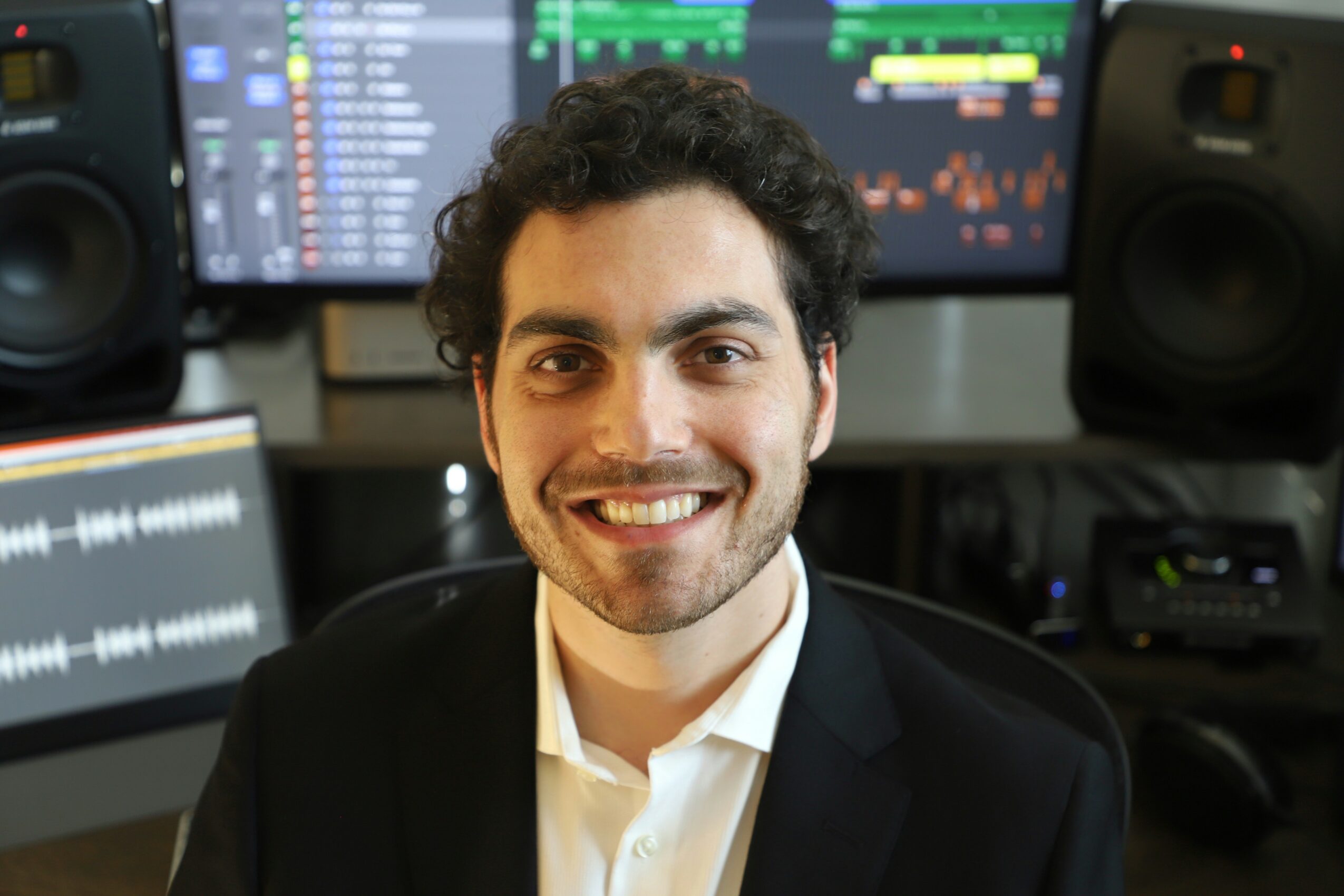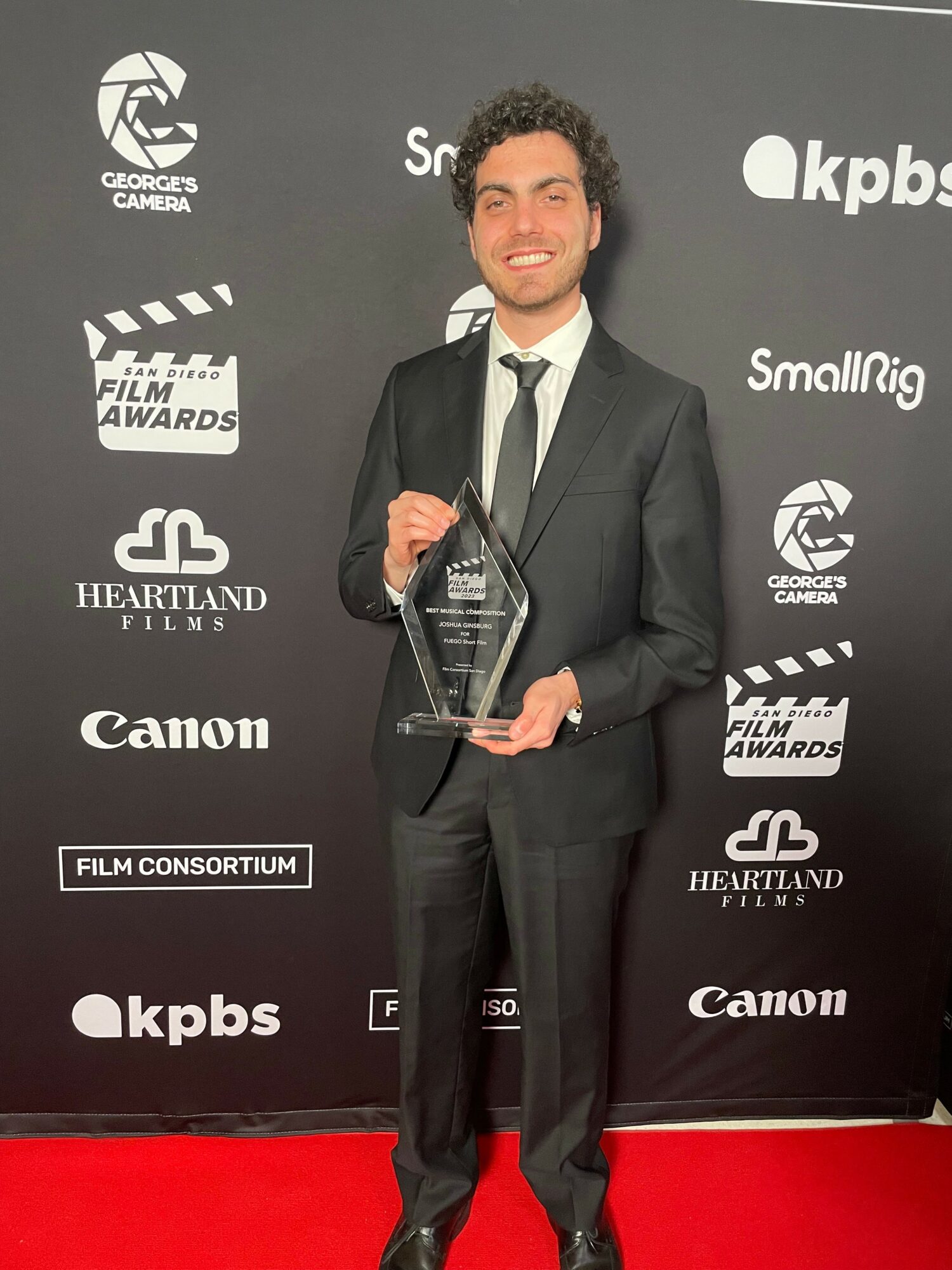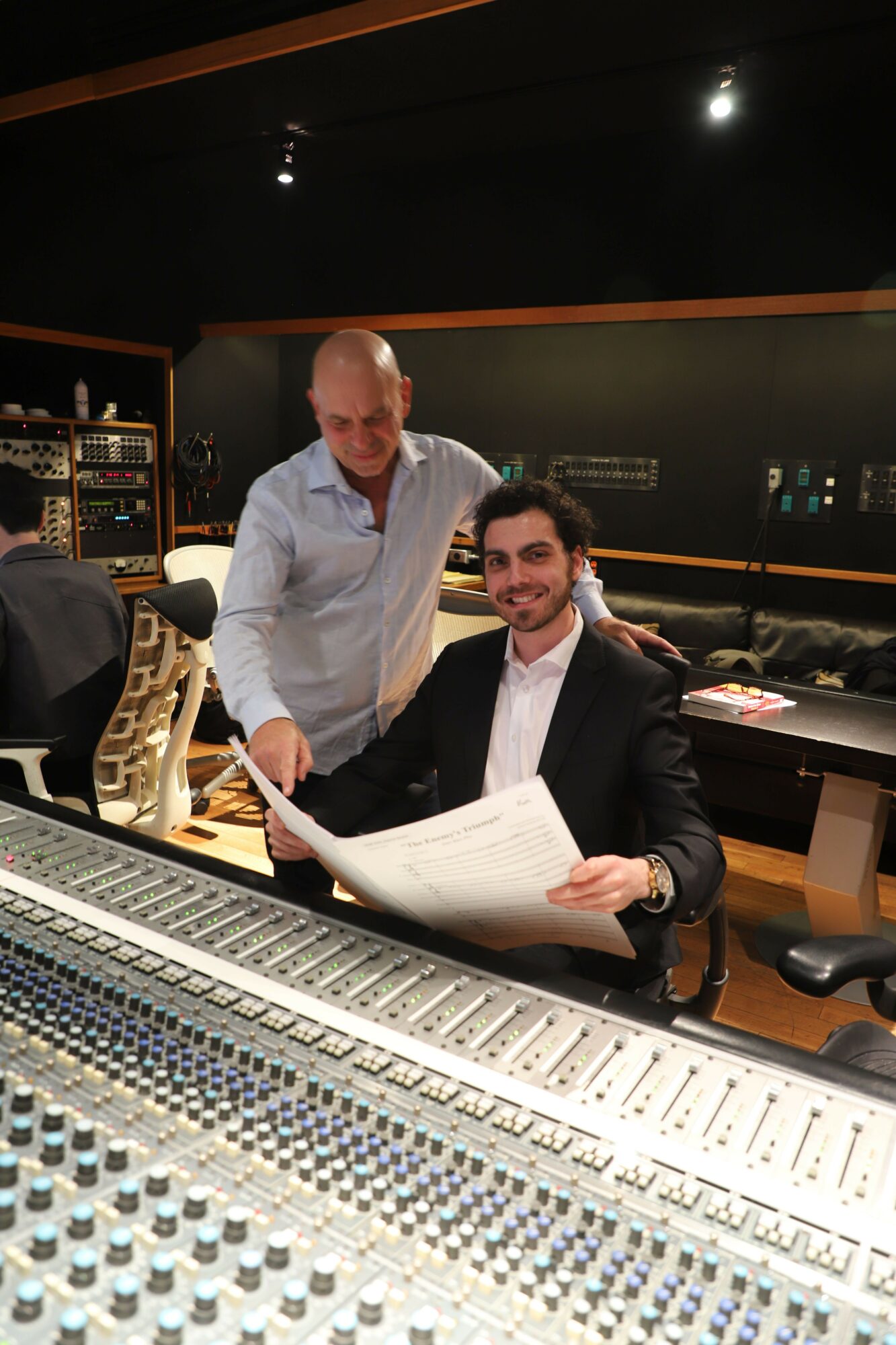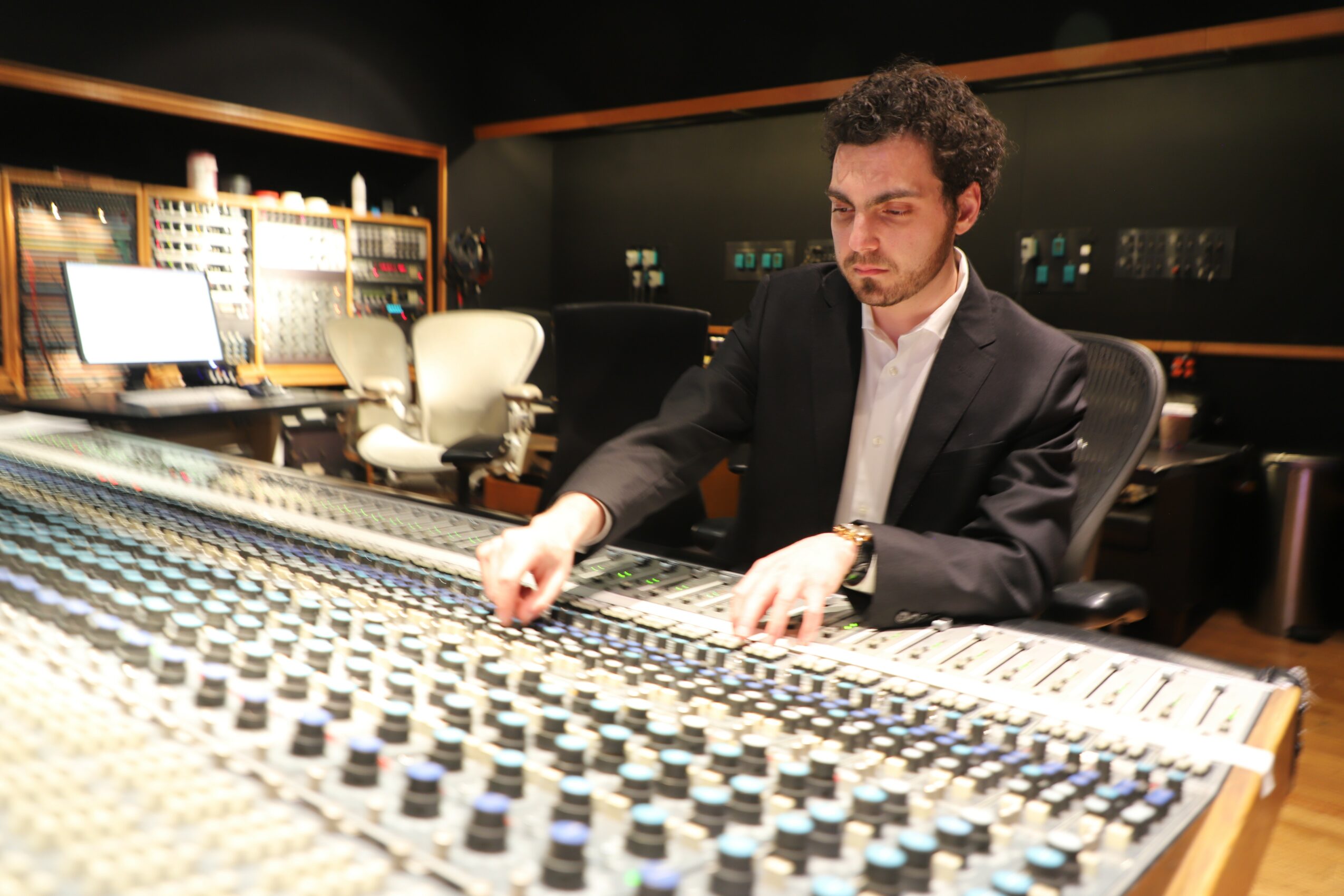

We recently had the chance to connect with Josh Ginsburg and have shared our conversation below.
Hi Josh, thank you so much for joining us today. We’re thrilled to learn more about your journey, values and what you are currently working on. Let’s start with an ice breaker: What is a normal day like for you right now?
A typical day in my week consists of starting my day with breakfast and scheduling my day by the hour (this is how I stay on top of all of my work). If I am working on a specific project, I’ll usually begin working on that for a few hours. If I’m not working on a specific project, I’ll begin by working on the hardest task I feel that I will be working on for the day. Sometimes this might be working on social media content, new music composition ideas, music production work, etc. After completing my first batch of work for the day, I’ll take a lunch break and proceed to work on my next task for a few hours. My afternoons typically consist of secondary work tasks. If I am working on a specific project, this might include organizing files, printing stems (individual pieces of music for mixing purposes), continuing work that was in progress in the morning, etc. If I am not working on a specific project, my afternoons will sometimes consist of getting inspiration for future projects or music compositions, reaching out to potential clients, working on social media, or working on music for future albums. I often conclude working for the day by 5:00 or 6:00pm.
Can you briefly introduce yourself and share what makes you or your brand unique?
Firstly, I am a composer for media (film, tv, video games, trailers, etc.). Media composition always inspires me because it combines all of the various elements that I very much enjoy: creating music in different genres, crafting scores that enhance visuals and bring them to life, expressing myself in different ways through music. As a media composer for nearly a decade, I enjoy telling a wide variety of stories through music. My role as a composer consistently provides new opportunities for me to keep growing, learning and innovating. I constantly find new things to learn, new tools to use, and new musical territories to explore. I would describe my style as a modern approach to the classic Hollywood sound, applying modern production techniques and unique instruments to the traditions within the established realm of media music. I excel at crafting exciting action sequences, inspiring musical beds, and intimate musical moments. Over the past four years, I have co-scored ten TV feature films in various genres (e.g. Romance, Comedy, Action Adventure) alongside collaborator Timothy Kobza. Some of my favorite films that we had the pleasure to co-score include “10 Truths About Love” and “A Bet with the Matchmaker” (directed by Brian Roberts – director for episodes of “Everybody Loves Raymond”) and “Kangaroo Kids” (directed by Fairai Richmond). Some of my other notable recent composer credits include: “Miriam” a short drama film by director Josie Andrews (Emerging Filmmaker Showcase at the 2025 Cannes Film Festival), “Fuego” by Edwin Franko (my score was awarded “Best Musical Score” at the San Diego Film Festival), and “Backlog” an emotional drama by Jacqueline Rosenthal (my score was nominated for “Best Original Score” at the Indie Short Festival in Los Angeles). No matter which project I am working on, I always look forward to the opportunity to write unique music that helps tell the story of the project at hand.
Appreciate your sharing that. Let’s talk about your life, growing up and some of topics and learnings around that. What’s a moment that really shaped how you see the world?
One of the moments that shaped how I see the world is a moment from my time in school. I recall listening to some of my now favorite film composers in my free time while in between classes, and it allowed me to discover that music (specifically music for media) can grant the listener passage to another mental world. This ultimately created my love for listening to film music. Listening to film music sparked my love for music for media, and allowed me to cultivate my imagination and learn how music can evoke emotions within listeners in countless ways. I specifically recall listening to the soundtracks to “Harry Potter and the Sorcerer’s Stone” by John Williams, and “The Incredibles” by Michael Giacchino and I felt truly inspired by the emotions within the music. These scores instantly transported me to their own worlds, and continue to be a source of musical inspiration for me.
If you could say one kind thing to your younger self, what would it be?
I would tell my younger self to start pursuing whatever you dream of working on, and anything is possible. Success can only be achieved by gradually working towards a goal. Everybody starts at the beginning and it takes time to achieve anything meaningful. Although I didn’t realize it until I was finishing my undergraduate degree, I had a love for film & video game music since I was quite young. I grew up as an avid fan of watching fantasy shows and playing inspiring video games, but I never realized that I could actually pursue it as a career path until I was in my early twenties. I struggled with confidence in my musical abilities for a long time, but I eventually realized that it is perfectly acceptable not to be a master at something immediately. I would tell my younger self to take pride in learning how to create something seemingly unimaginable. Although passion may be the spark which ignited my career, it was ultimately hard work and dedication that were the determining factors for turning my love of film music into a career path.
So a lot of these questions go deep, but if you are open to it, we’ve got a few more questions that we’d love to get your take on. What’s a belief you used to hold tightly but now think was naive or wrong?
I once believed that I had to be a “master” composer and musician in order to have a career in music, but I now know that this isn’t the case. I gradually realized that being a professional musician and composer means having a comprehensive understanding of music, strong music production abilities, and a willingness to keep learning. It does not mean, however, that a musician has to be a master at the level of John Williams. Just as there is only one John Williams and one Hans Zimmer, I have come to realize that having a unique voice is far more important than prodigious talent. Music truly is a life long journey and a never ending learning process. While one has to be at a certain level to be a professional, being an excellent musician (not necessarily the best), having a unique voice, and being a great collaborator are truly the most necessary skills for having a career in media composition.
Before we go, we’d love to hear your thoughts on some longer-run, legacy type questions. What is the story you hope people tell about you when you’re gone?
I hope that people will one day tell others that I was a great musical storyteller and collaborator. If I get the privilege to be known for having these qualities, I will have been successful in my career. Media composition is firstly about working with a team to tell stories, and secondly about writing great music. Composing for media is a team effort, while working alongside a director and a team. Film composers, such as John Williams, are storytellers first, and masterful musicians second. While it is clear that John Williams’ music allows visuals to flourish, this is the case because it primarily enhances the scene in the movie he is scoring, and secondly because it was masterfully written. With this in mind, I ultimately hope to be known as a great storyteller, composer and collaborator.
Contact Info:
- Website: https://www.joshginsburgcomposer.com
- Instagram: https://www.instagram.com/joshgcomposer
- Linkedin: https://www.linkedin.com/in/joshua-ginsburg-007075b4/


















